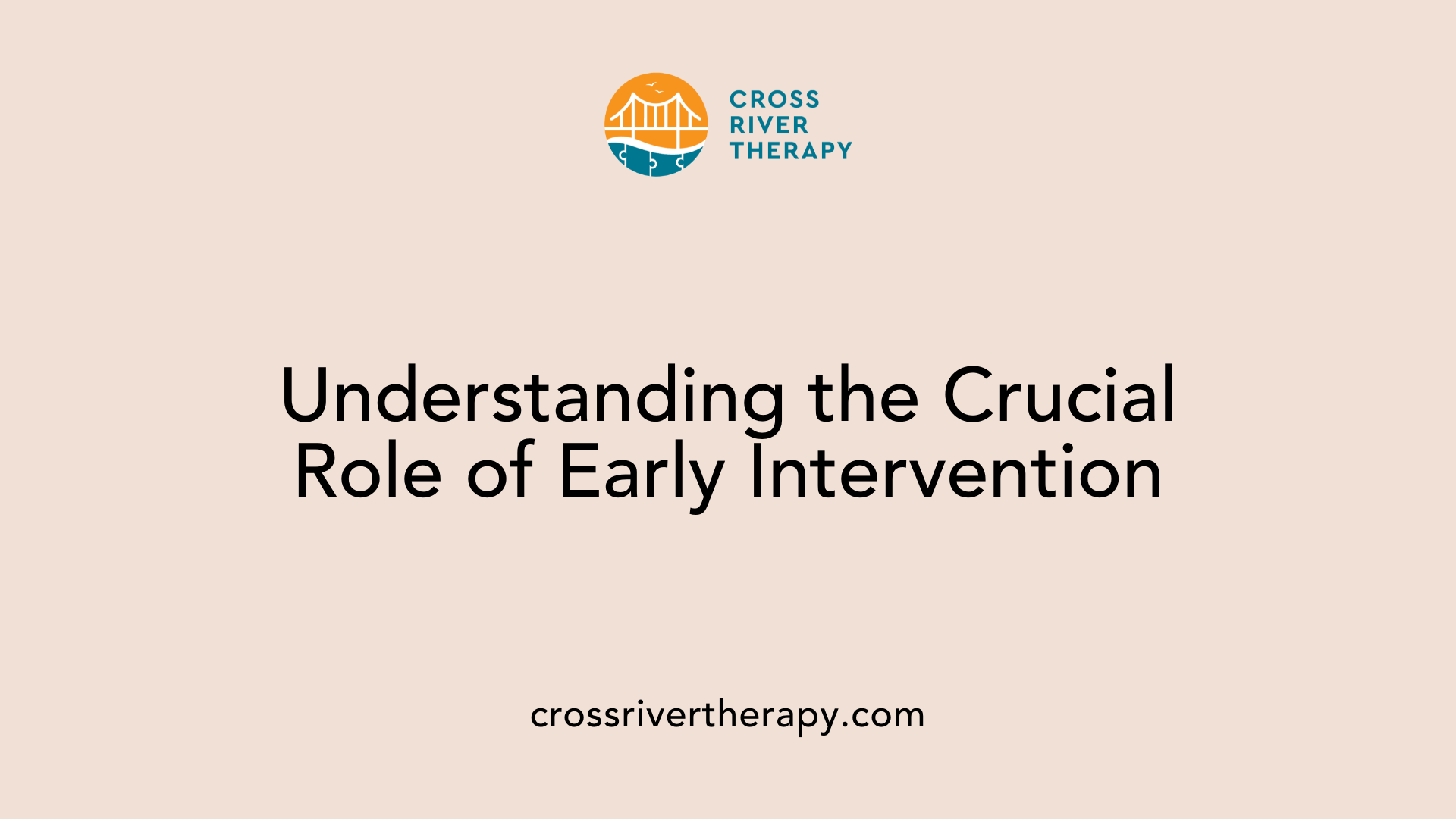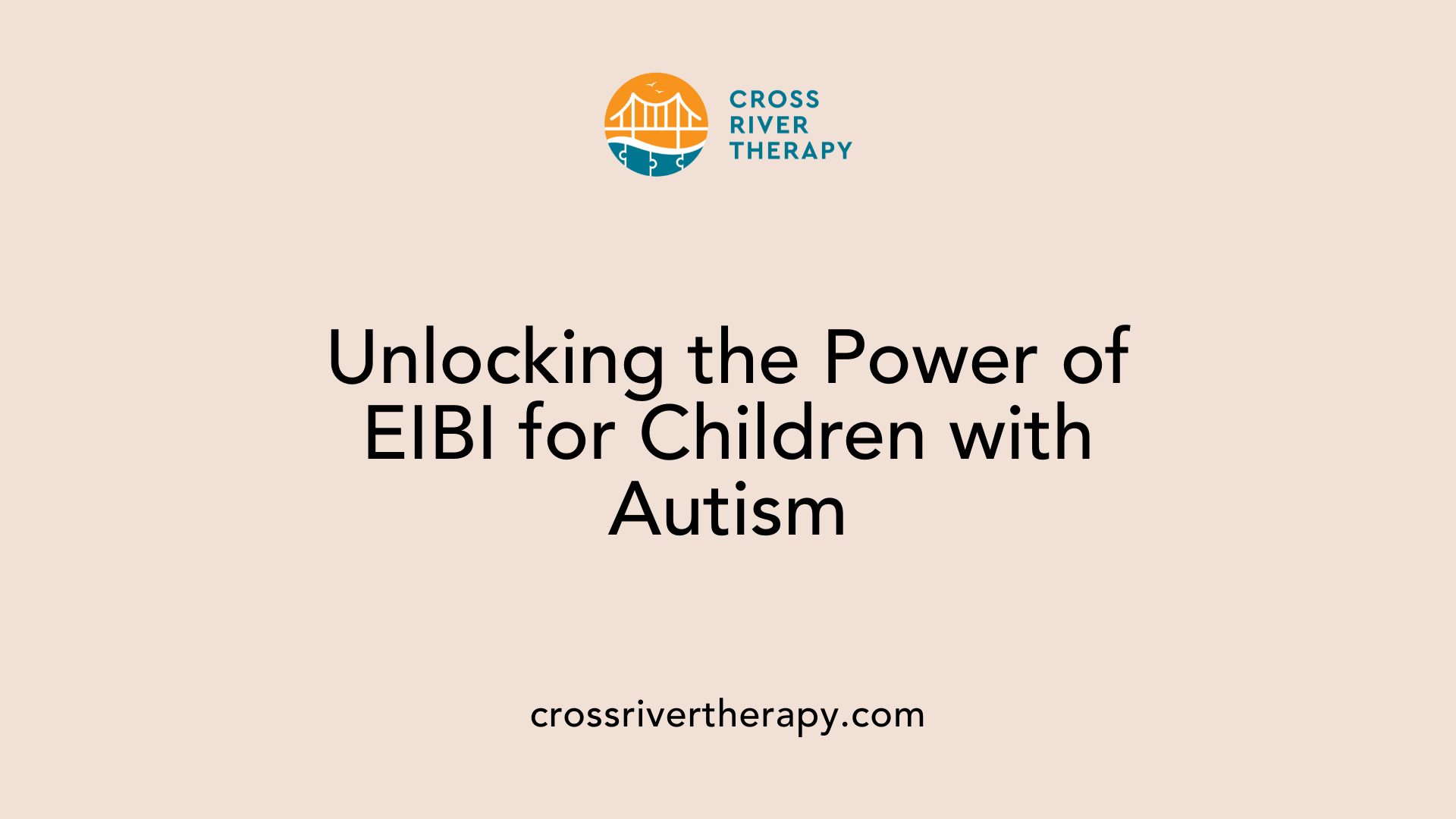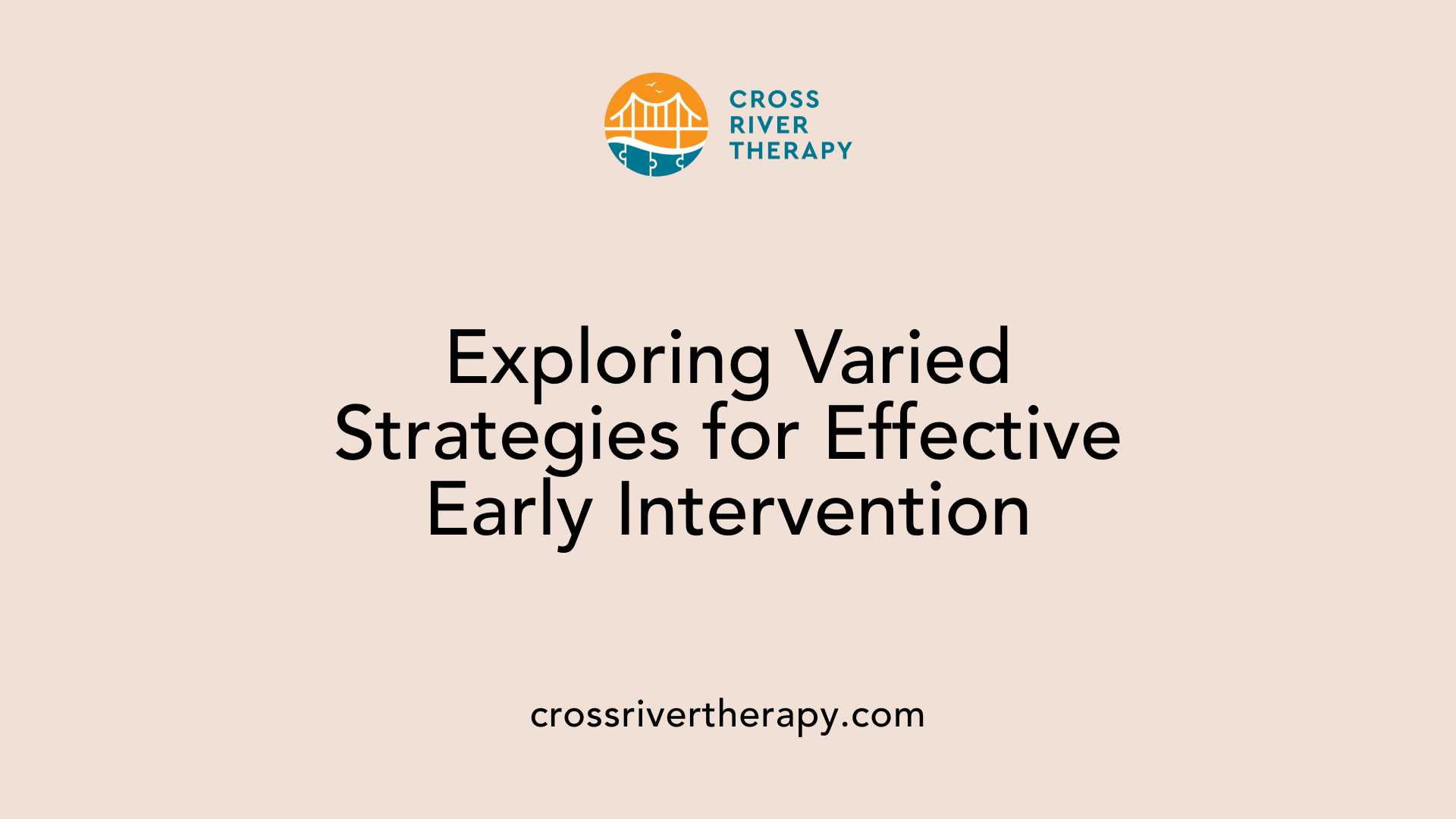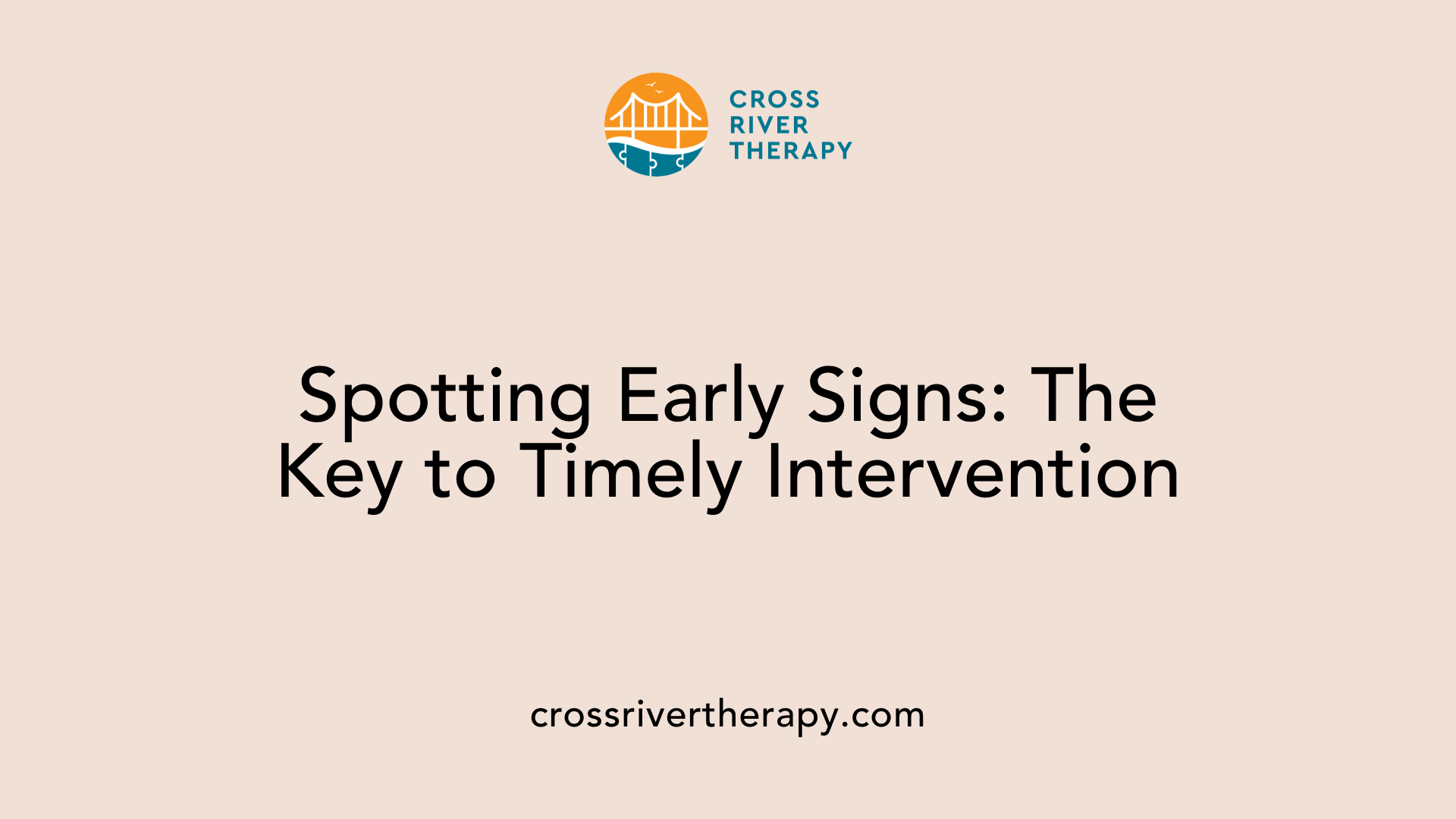The Importance of Early Intervention in Autism Treatment
Uncovering the Lifelong Benefits of Early Autism Intervention
Understanding the Critical Role of Early Intervention
Autism Spectrum Disorder (ASD) affects approximately one in 54 children, significantly impacting their social, communication, and behavioral development. The importance of early intervention cannot be overstated, as it has the potential to transform the developmental trajectory of children with autism. Through timely and specialized therapeutic approaches, significant improvements in quality of life can be achieved for both the children and their families. This article explores why early intervention is crucial, the types of therapies available, and what current research reveals about effective treatment strategies.
Why Early Intervention is Essential for Autism

Why is early intervention important for autism?
Early intervention is crucial for children with autism as it greatly enhances their quality of life by fostering essential skills and addressing behaviors at an early stage. Starting interventions promptly leads to improvements in cognitive abilities, language, and social-emotional functioning, facilitating significant, positive changes in a child's life and future outcomes.
Long-term benefits of early intervention
Research has consistently shown that early intervention not only boosts immediate developmental progress but also enhances long-term outcomes. A notable study found that children participating in early intervention programs gained an average of 18 IQ points, illustrating the profound impact this support can have. With timely, tailored therapies, children are more likely to achieve milestones, reducing the likelihood of severe developmental challenges later on.
Enhancing overall quality of life
Effective early intervention strategies contribute to improved social skills, diminished challenging behaviors, and enhanced family dynamics. By incorporating therapies such as behavioral analysis and speech-language sessions, children can develop independence and better manage sensory experiences. Consequently, these enhancements lead to a more fulfilling life for autistic individuals, fostering better engagement in social settings and reducing stress for families.
| Aspect of Improvement | Description | Long-term Impact |
|---|---|---|
| Social Skills | Better interaction and communication with peers through tailored approaches. | Enhanced relationships and social integration. |
| Cognitive Development | Increased IQ and problem-solving skills through targeted educational strategies. | Improved academic performance. |
| Emotional Regulation | Addressing behavioral challenges leads to better self-control and coping strategies. | Lower incidence of mental health issues later on. |
| Family Dynamics | Families gain access to resources and support, reducing stress and improving collective well-being. | More cohesive family relationships. |
Overall, early intervention is a pivotal aspect in shaping a positive future for children with autism, supporting their journey towards independence and a fulfilling life.
Exploring Early Intensive Behavioral Intervention (EIBI)

What is Early Intensive Behavioral Intervention (EIBI) in autism?
Early Intensive Behavioral Intervention (EIBI) is a comprehensive treatment approach for children diagnosed with Autism Spectrum Disorder (ASD). This intervention is based on principles from applied behavior analysis (ABA) and typically occurs over 20 to 40 hours per week for several years. The aim of EIBI is to enhance key areas such as communication, social skills, and adaptive behaviors that are usually compromised in children with ASD.
Effects on adaptive behavior and IQ
Research findings indicate that children undergoing EIBI experience notable improvements. Specifically, the average enhancement in adaptive behavior is around 9.58 points, while mean IQ scores increase by approximately 15.44 points when compared to peers receiving standard or non-intensive treatment options. Additionally, EIBI is correlated with improvements in both expressive and receptive language capabilities, evidenced by effect sizes of 0.51 and 0.55, respectively.
Comparative effectiveness
While EIBI presents promising outcomes in enhancing skills associated with ASD, it is essential to note that the current empirical evidence supporting its efficacy is considered somewhat limited. This underscores the necessity for ongoing research to comprehensively assess the long-term benefits and effectiveness of EIBI compared to other intervention strategies. As the landscape of autism intervention evolves, a clearer understanding of EIBI's impacts on diverse developmental areas will become increasingly crucial.
Evaluating the Effectiveness of Early Intervention

How effective is early intervention for autism?
Early intervention for autism is highly effective, with research documenting significant benefits resulting from early diagnosis and treatment. A study focusing on children aged 36 to 60 months found that early intervention notably reduced autistic symptoms, especially in those aged 36 to 47 months, compared to those who received interventions later (p < 0.05). The Gilliam Autism Rating Scale (GARS-3) and the Estimated Speech and Language Development (ESLD) scale were employed to gauge the effectiveness of these interventions, emphasizing the importance of timely actions.
Programs like the Early Start Denver Model (ESDM) combine applied behavioral analysis with play-based learning. Results showed that children participating in such interventions experienced an average increase of 18 IQ points, along with enhanced social engagement and communication skills. The constructed therapy plans are tailored to each child's individual learning style and developmental needs, fostering robust skill development right at the onset of symptoms.
Additionally, the improvements aren't just limited to cognitive gains. While both younger and older cohorts demonstrated similar outcomes in speech-language capabilities after one year (p = 0.626), children often exhibit decreased autism symptoms and can even receive altered diagnoses over time as they exhibit more age-appropriate skills. This changing trajectory reinforces that early intervention not only aids in symptom management but significantly enhances overall development and supports a better quality of life for children and their families.
Diverse Approaches to Early Intervention

What types of early intervention are available for autism?
Early intervention for autism encompasses a variety of programs aimed at improving developmental outcomes. Common therapies include:
- Applied Behavioral Analysis (ABA): This evidence-based approach teaches skills through incremental steps, using reinforcement to encourage positive behaviors.
- Early Start Denver Model (ESDM): A play-based intervention combining ABA with relationship-focused strategies, enhancing social and communication skills in young children.
- Speech Therapy: Focuses on improving communication skills, allowing children to express themselves and understand others better.
- Occupational Therapy: Helps children develop daily living skills and manage sensory experiences, contributing to their independence.
Impact on child development
Research indicates that early intervention can significantly reduce the severity of autism symptoms and enhance social, communication, and adaptive skills. For instance, studies show that children who engage in these therapies at a young age often demonstrate improved social engagement and better functioning in academic settings.
Importance of personalized plans
The effectiveness of these strategies highlights the importance of timely and tailored support for children with autism. Individualized intervention plans that cater to each child's unique strengths and challenges can maximize the effectiveness of early intervention, ensuring that therapy is both engaging and impactful.
Identifying Early Signs and Timely Intervention

Early Signs of Autism
Identifying autism spectrum disorder (ASD) early is crucial for effective intervention. Signs can manifest before a child’s first birthday, with observable behaviors noted at various developmental milestones:
- 6 Months: Limited eye contact and rare smiling.
- 9 Months: Lack of response when called by name.
- 12 Months: Little to no babbling or interaction with games. These early indicators warrant active observation for developmental delays or atypical behaviors.
Importance of Early Diagnosis
The American Academy of Pediatrics recommends routine screenings at 18 and 24 months to ensure timely diagnosis. Early detection enables families to access intervention services that can significantly enhance children's language, social skills, and overall development. Research indicates that intervening as early as 18 months can lead to improved outcomes, transforming the developmental trajectories of many autistic children.
Role of Timely Screening
Timely screening is essential to catch ASD symptoms early, allowing tailored interventions to begin before age three when neuroplasticity is at its peak. Engaging in interventions geared toward improving communication and social skills early on can mitigate challenges like social isolation and behavioral issues later in life. By fostering development in these critical early years, families can help ensure their children achieve their fullest potential.
The Transformative Potential of Early Intervention
Early intervention represents one of the most significant opportunities for improving the lives of children with autism. By addressing developmental challenges when the brain is most adaptable, these interventions can lead to substantial improvements in skills, behaviors, and overall quality of life. Through tailored therapeutic approaches, children are empowered to reach their full potential, which fosters not only their individual growth but also enhances family dynamics and societal inclusion. The evidence is clear: early and intensive intervention is a crucial element in the pathway toward a brighter future for children with autism.
References
- Importance of Early Intervention in Reducing Autistic Symptoms and ...
- 5 Benefits of Early Intervention for Autism - LEARN Behavioral
- Study Finds Early Intervention Highly Effective | Autism Speaks
- Early Intervention - UNC Autism Research Center
- 8 Benefits of Early Intervention for Autism
- The Importance of Early Intervention for Autism Spectrum Disorder
- The Importance of Early Intervention for Autism - Maxim Healthcare
- Importance of Early Autism Support - Catalyst Care Group
- Understanding The Significant Impact Of Early Intervention



